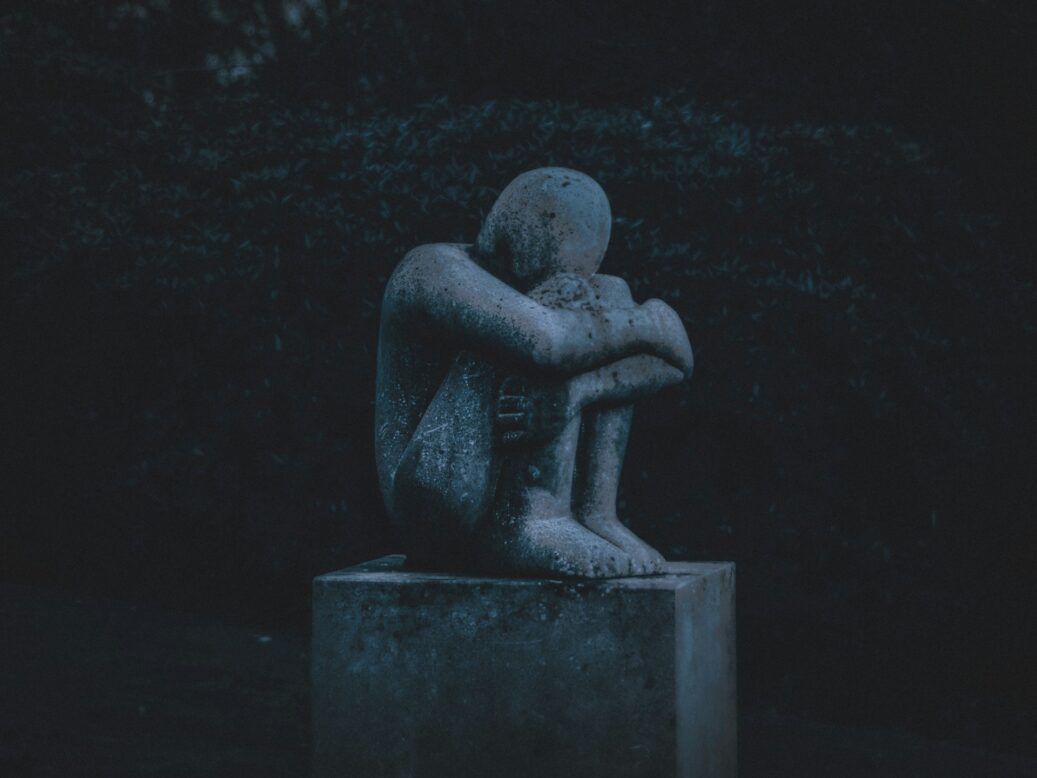It was the hardest day of my life.
I knew it was coming, but nothing could’ve prepared me for it.
Nancy and I had been happily married for almost 40 years. But on that day, what God had joined together, death cruelly ripped apart.
She had been diagnosed with terminal brain cancer, with an average life expectancy of 18 months. She lived just 9. And on that day, I was suddenly lost and alone in a world of crushing pain and numbing grief.
That was 19 months ago. Where am I today, and what am I learning as a man who has lost the love of his life?
Grief is the high cost of loving.
One of the first lessons I learned was that grief and love are inseparable. The more we love someone, the more it will hurt when they are gone. It’s a package deal. In the words of Henri Nouwen, “…those we most love cause us not only great joy but also great pain…We have to trust that the risk of loving is always worth taking.”
One of the first lessons I learned was that grief and love are inseparable.
I had no idea what that meant until the day Nancy died. It was the pain of bereavement, a word that literally means “to be ripped apart or amputated.” Even Jesus experienced that pain as He openly wept at the tomb of His friend Lazarus. “See how He loved him,” the people said. (John 11:36)
Lean into grief.
We live in a pain-avoidant world. And when something hurts this much, it’s no wonder we look for an escape.
I was no exception.
It’s human nature to want pain relief when life feels unbearable. That’s why addiction is so common among those who grieve; anything to numb the pain. We turn to food, or alcohol, or work, or sex, or screens, or romance, or busyness. The options are endless.
But sadly, avoidance only multiplies our pain. There is only one way that leads to healing: I had to be willing to lean into the pain of grief, to feel it with all its terrifying intensity, if I ever hoped to move through it. It is the only pathway to healing.
Make peace with your past.
There is a horrible finality in death. Throughout my marriage, there was always a “tomorrow” when I could resolve to do better, make things right, or turn over a new leaf.
But the day Nancy died, that door to “tomorrow slammed” shut. And although we had had a rich and beautiful marriage, I had lingering memories of times I had failed and fallen short in my love. Or the many times I had simply taken her love for granted.
Those memories threatened to undo me in the months that followed. And even though some of that regret was distorted by my “grief brain,” I had much to learn about making peace with my past and learning to forgive myself.
Fortunately, I had grown over our 40 years of marriage, and I realized how unfair it was to judge the person I had been by the person I had become. I am also learning that the man in the mirror needs grace and mercy as much as anyone else in his life (Luke 6:36).
I am also learning that the man in the mirror needs grace and mercy as much as anyone else in his life (Luke 6:36).
But even today, I still struggle with my human tendency to take the people I love most for granted, and I wonder why we so often wait for death to awaken us to this.
Embrace healing practices.
Grief isn’t something that can be “fixed.” But I learned that there are practices that could help me walk through it in healing ways.
Early on, I chose to spend the first hours of every day journaling. It was a daily struggle for me to accept the reality of Nancy’s death and the magnitude of my catastrophic loss. But writing became strangely helpful. The raw honesty of my journaling helped my shattered heart to begin putting the pieces of a new life together again.
Finding words for the intensity of grief helped me to make sense of my overwhelming feelings of sadness and bereavement. I also spent time walking every day, mostly outdoors, in a nearby forest. The rhythm of walking somehow brought a semblance of order to a chaotic life. It was there that I also began talking with God, in simple, unfiltered prayers.
While being alone was important, I also made it a practice to meet with at least one person every day, to remind myself that I was not alone on this journey, nor was I the only person hurting in this world.
Rediscover the Psalms.
In the early days of my grief, I couldn’t go near the Bible. Verses that once had been life-giving and comforting now felt distant and out of touch.
But it was the book of Psalms that first began to speak to me.
It is truly remarkable that at the very center of our Bible is a book where God patiently listens to what it feels like to be human, where we are invited into genuine honesty about the messiness of life and faith.
It was in that invitation that I began to find my voice. Although the Psalms can sometimes seem irreverent with their accusations of God’s seeming betrayal, indifference, or absence, for me, they resonated deeply; a book with no pious pretense, no shallow God-talk, and no heroic denial of human suffering (e.g. Psalm 13:1-2).
I felt right at home there. It was like finding a new companion in my valley of the shadow of death, someone who could identify with my deep distress and loneliness (e.g. Psalm 23:4; Psalm 31:12).
It was also a relief to discover in the Psalms that grief and faith can coexist. This had become a heavy burden for me—the subtle accusation I sometimes felt that my intense grief was a sign of spiritual lethargy or a lack of faith.
But if my own Lord Jesus could cry out, “My God, my God, why have you forsaken me?” (Psalm 22:1; Mark 15:34), surely, I could too, without feelings of guilt and inferiority.
Choose life over death and hope over despair.
The day Nancy died was the end of a life I had known and loved, and the beginning of a life I could barely comprehend.
And I soon realized there were no guarantees that this new life would turn out well or even be worth living. I could see from people around me that grief could just as easily destroy a person and become their identity, filling them with bitterness and resentment (e.g. Ruth 1:20)—and that became a real possibility for me.
But in the midst of a growing despair, I received a word from the Lord from an unexpected source.
A person I had never met wrote me an email saying the Holy Spirit had prompted them to share six Scripture verses with me.
And although they had no prior knowledge of my life, those scriptures were like a laser, piercing my heart.
This person reminded me of the words of Moses at a critical moment in Israel’s history; “See, I set before you today life and prosperity, and death and destruction…Now choose life, so that you and your children may live and that you may love the Lord your God and listen to His voice, and hold fast to Him. For the Lord is your life.”(Deuteronomy 30:15; 19-20)
Like Israel, I, too, was standing at a crossroads.
I could now choose to live out my days in hopeless despair, as though life were nothing but a cruel joke.
Or I could choose to believe in the Lord of life, standing with me at that crossroads, guiding my steps, and rebuilding my shattered life.
The stakes were that high. And for a person struggling with grief, choosing life can often feel like moving a mountain.
But it was another one of those verses from a perfect stranger that continues to give me courage and strength to make that choice:
“This is what the Lord says, who made a way through the sea and a path through mighty waters, ‘Forget the former things; do not dwell on the past. See, I am doing a new thing! Now it springs up; do you not perceive it? I am making a way in the wilderness; and streams in the wasteland.’” (Isaiah 43:16-19)
About


